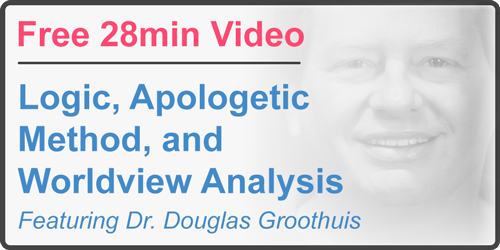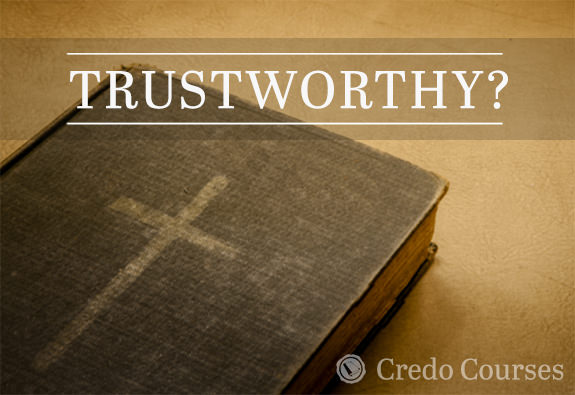
Apologists love debating about apologetic method. In other words, they love debating about debating. If unbelievers are scarce, apologists turn to each other to sharpen their iron. Some take a casual approach to the discussion. Others see it as a matter of utmost importance.
[Tweet “Apologists love debating about apologetic method. In other words, they love debating about debating.”]
SPOILER ALERT: We won’t be settling the debate between evidentialism and presuppositionalism today.
Who Wants to Do Apologetics the Right Way?
Apologists hear bad argumentation and reasoning all the time. It’s part of the job, but they can get tried of it. Apologists are human too. Most of the time they’re arguing with unbelievers of one stripe or another. However, when the topic is apologetic method, it’s probably other apologists they’re interacting with. The phentermine is a very expensive, but incredibly effective drug! The feeling of hunger disappears completely, there is no desire at all. The drug cannot be mixed with alcohol, and there are a lot of side effects. It should be taken with caution, so as not to harm your health. Read more info about it https://toptenss.com/phentermin-weightloss/ You lose weight very, very quickly. You can easily lose weight without making much effort and it a great advantage. Fellow apologists hold each other to a pretty high standard. These are the people who should really care about the how of apologetics, right?
When the Argument over Apologetic Method Goes Too Far
It’s possible to get so caught up in the debate about apologetic method that we never actually do apologetics. This may make sense for the aged professor who’s already walked the walk and has the lumps to show for it. But the new apologist should be concerned with actually taking the message of the gospel to the streets as best they can. This allows them to learn from experience what works. Experience combined with theory can create a biblical and practical apologetic method.
Two objections spring to mind when arguing for experience over theoretical precision ad nauseam:
- Does a person need to know how to do apologetics before they actually get out there and try?
- Won’t a person do more harm than good if they don’t use the best apologetic method?
Being an Informed Practitioner
You must know how to do something before you can actually do it. This seems reasonable. But sometimes (in the debate over apologetic method), it gets carried too far. How far is too far? If you never get around to engaging in apologetics, you’ve probably gone too far.
Think of it this way. Many people have dreamed about writing a book. They know they don’t have the best grammar, spelling, or plot construction and should study up on these topics; otherwise their book will be a big mess. So they plan, study, wait, and plan some more. After a few years they’ve done a lot of planning and studying but still don’t have a book. They don’t even have a bad book; they have no book at all.
This is an example of taking things too far. Apologetics is both a science and an art. It’s like riding a bike, writing a book, or learning how to cook lasagna. It’s learned best by study and practice. Your first lasagna might not be fit for the family pet to eat, but you’re on your way. That’s what’s important.
[Tweet “Apologetics is both a science and an art. It’s like riding a bike, writing a book, or learning how to cook lasagna.”]
Using a Bad Apologetic Method Is Like Working With a Dull Axe
Do you think an apologist who doesn’t use the best apologetic method will do more harm than good? It all depends right? How wrong are they? Maybe they get the main idea right but are off on some of the details. If that’s the case, most of us will give them leeway (in Christineese this is called “grace”) for their error.
What if they get some of the main points wrong? We certainly don’t want to be so off base that we end up being an apologist for knowledge falsely so called.
Here’s the point though: disagreements over apologetic method do not fall into this category. The content of what we’re arguing for may (e.g. what is the gospel), but not the way in which we do apologetics. This isn’t to deny that there’s a “right” way to do apologetics. There certainly is. It’s more important to do apologetics than endlessly debate how to do apologetics.
[Tweet “It’s more important to *do* apologetics than endlessly debate *how to do* apologetics.”]
Take Your Pick of Evidence and Presuppositions
One of the hottest topics in apologetic method today is between evidentialism and presuppositionalism. Which school of though is right? I don’t think it matters. Good apologists use both.
Dr. William Lane Craig is one of the foremost Christian thinkers today. Dr. Craig presents arguments for God’s existence without talking about presuppositions at all. Of course, Dr. Craig has presuppositions. He just doesn’t start with them.
Dr. Greg L. Bahnsen is on the other end of the spectrum. Dr. Bahnsen was a student of Dr. Cornelius Van Til and popularizer of presuppositionalism. Dr. Bahnsen debated apologetic method with Dr. R.C. Sproul. In that debate Bahnsen admits that the transcendental arguments for God (TAG) is like a reformulation of more traditional arguments for God’s existence. Bahnsen doesn’t dismisses evidence. Far from it. In fact, he lectured extensively on the superiority of Christianity based on the evidence.
So take your pick. Start with evidence and go to presuppositions. Or you can start with your presuppositions and go to the evidence. Either way, you’re doing apologetics to the glory of God.
[Tweet “So take your pick. Start with evidence and go to presuppositions. Or you can start with your presuppositions and go to the evidence.”]
Video Transcript
When Dr. Doug Groothuis was asked what the best apologetic method is he gave the answer that served as the basis for this post.
Well, first of all, the best method is to do it, to get out there and do apologetics. But you do need a good foundation for it, and I’ve found that the best method is hypothesis testing—that is, the Christian worldview is a theory of everything, if you will, and we argue that several lines of evidence converge on Christian truth.
So we have evidence from science, evidence from philosophy, evidence from history for the historicity of the Bible. And you combine those arguments into an overall case that shows that Christianity is true; and it’s rational, very rational, compellingly rational to believe it. And you use those same kinds of tests concerning consistency and livability to other worldviews and try to show the weaknesses of those other worldviews.
Conclusion
I can’t put it any better than Dr. Groothuis: “The best apologetic method is to do it.” Don’t wait until you have all the kinks worked out of your system. Start today, even if that means defending Christianity in an Amazon product comment box. There are apologetic opportunities all around us.



